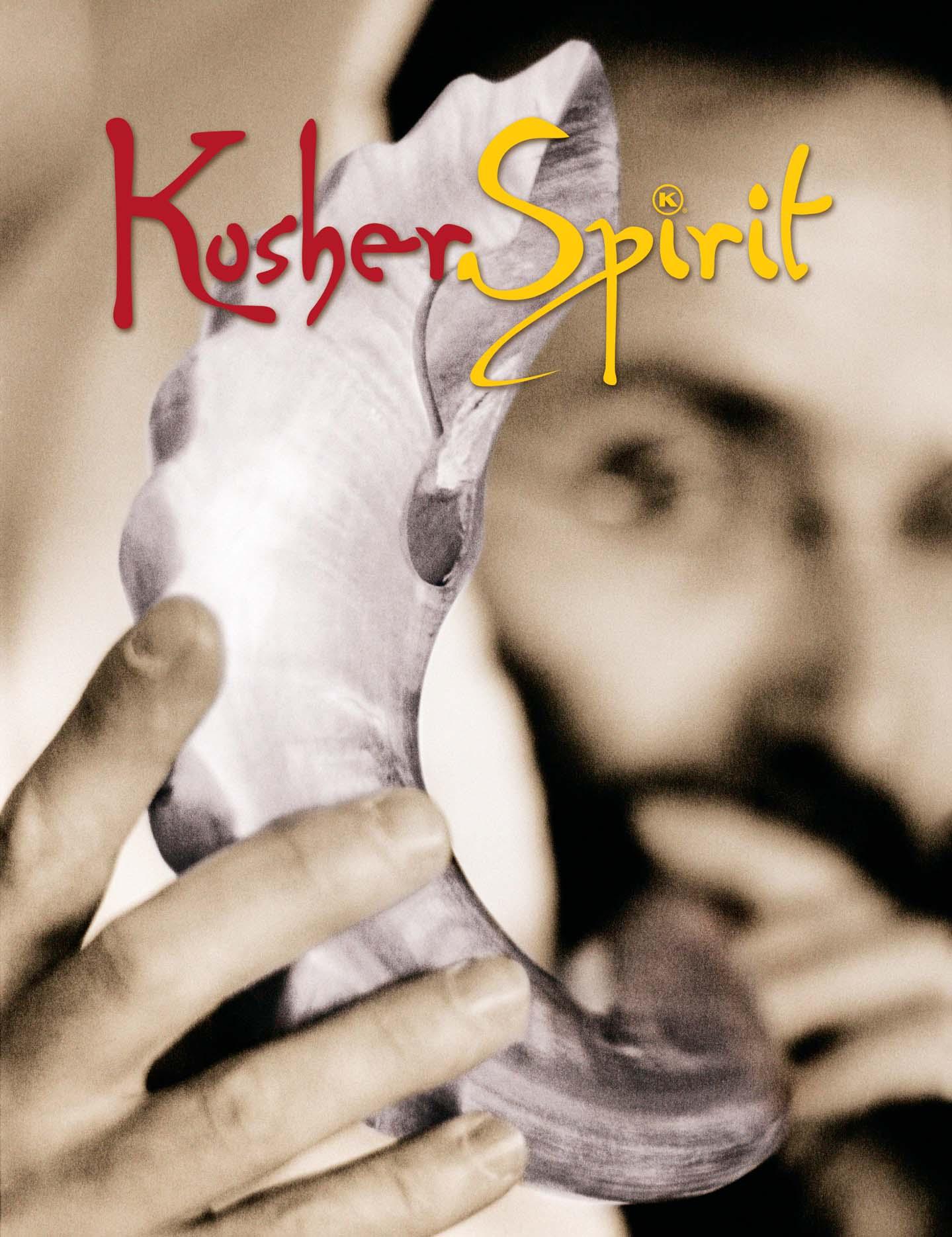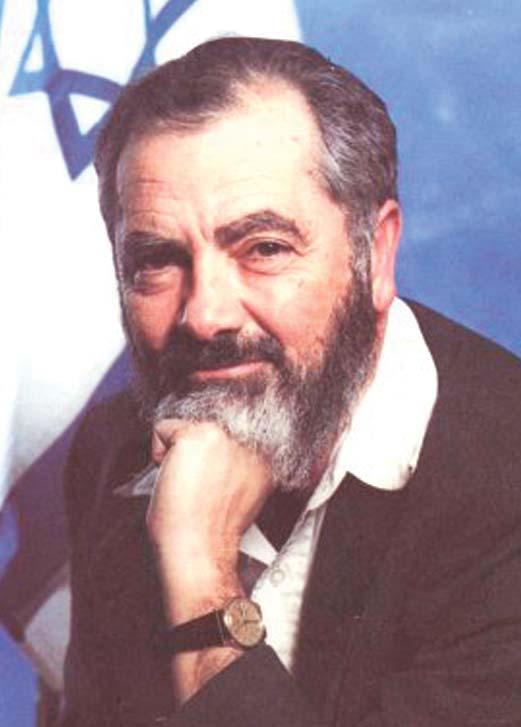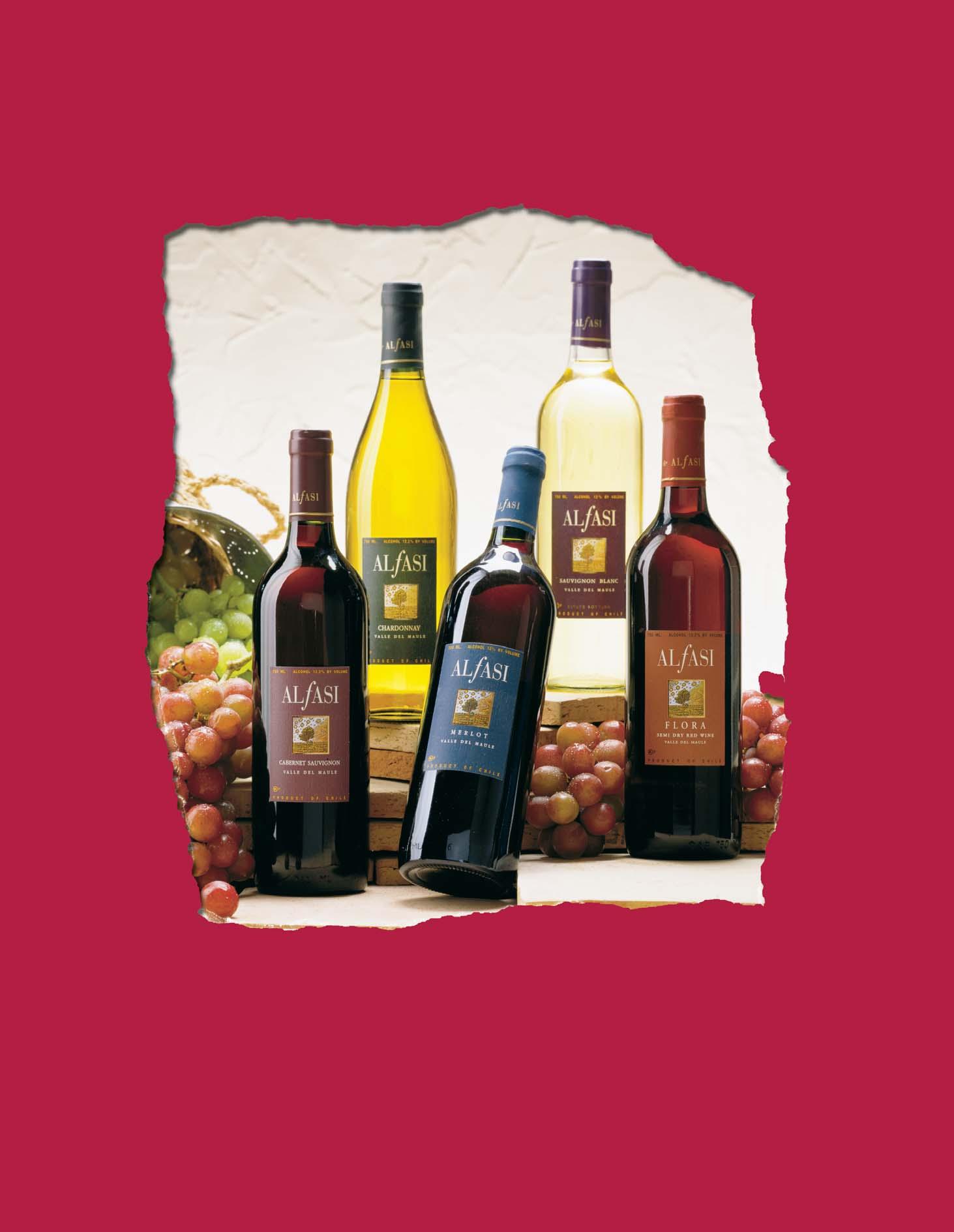
Certified Soul Nutrition Global Audience: One Million T i s h r e i 5764/ Fall 2003
And the voice called to me from heaven. "Dovi," it said, in an oddly mechanical tone, "just where do you think you're going? Get back on the Hutchinson River Parkway right away!"
Actually, the voice did not originate from heaven. Nor did it address me by my first name. But the part about the "strangely mechanical tone" is perfectly true. For a drive from my Brooklyn office to a meeting at Kraft Foods in Rye Brook, New York, I put my vehicle's GPS navigation system to work.
The meeting went well (see centerfold), and it was only on my return drive that I looked up and noticed the exit for Francis Lewis Boulevard. Zomick's, a popular, ~-certified kosher bakery, is located a short distance from Francis Lewis Boulevard on Central Avenue in Long Island. Desperate to populate my desolate stomach, I hooked a quick right at the exit.
That's when it happened. The vehicle's navigation device, which had been supporting my progression along the logical route to my stated destination, took note of my deviation and went berserk! The miniature computer screen, previously displaying a digital map, now started flashing the term "recalculating." Then the orders started coming fast and furious. First there was, "At the corner, turn left!" When I ignored this, there came, "In a half mile, turn right!" Finally, with an air of urgency, it instructed, "If possible, please make a U turn!"
My thoughts turned back to my days in yeshiva. There was that enigmatic verse in Ethics of the Fathers. 1 It spoke of a Heavenly Voice issuing forth from Mount Choreb (Sinai), imploring errant souls to return to G-d. "Of what use is a Heavenly Voice," asks the Baal Shem Tov, "if it is never heard on earth?" The Baal Shem Tov explains that while the voice is not physically audible,
By Dovi Scheiner
man's spirit senses it, and many a lost soul has returned at the beck of this powerful call. Inclined though I was to trust the authenticity of this Torah teaching, the whole scenario seemed somehow farfetched. I mean, does G-d truly monitor every move we make, to the point of registering even the smallest mistake? Is our disobedience to the Divine command taken so seriously as to warrant the raising of a heavenly fuss? And finally, could such otherworldly rumblings realistically register down here on earth? Somehow, a right turn in the wrong direction brought me the answer to my questions. Somewhere between the Hutchinson River Parkway and Zomick's Bakery, it became apparent that a remote satellite was attuned to my precise station. One wrong move on my part was enough to elicit an outer space outcry, with this skyway sleuth adjuring me to return to the path of truth!
A new technology reinforced an ancient reality. If a man-made satellite can simultaneously direct tens of thousands of vehicles, why can't G-d direct the many men He made?
Indeed, He does! Sometimes we feel a bolt of inspiration out of the blue, with no prior warning or preparation. It's the Heavenly Voice ringing out and making the connection. At times, we may even take the hint on a conscious level. Like receiving a call from a friend inviting you to attend a Jewish gathering, or opening your Jewish weekly and encountering a little bit of Kosher Spirit!
DoviScheineriseditorofKosherSpirit. 1. Ethics 6:2
We welcome your comments, submissions, and letters to the editor.
Mail: 391 Troy Avenue Brooklyn, NY 11213
Tel: 718.771.0100
E-mail: editor@kosherspirit.com
EDITOR-IN-CHIEF: Dovi Scheiner
ASSOCIATE EDITOR: Sara Levy
KOSHER EDITOR: Rabbi Chaim Zalman
EDITORIAL CONSULTANTS: Neria Cohen, Shalom Doron, Dov Greenberg, Malka Percal
DESIGN: www.spotlightdesign.com
NOTE: The views of Kosher Spirit are not necessarily those of the ~

2
www.KosherSpirit.com KS
By Alan Dershowitz
———
When I was about fifteen years old, my grandfather came to me and said, "Avi"—that was my name in those days—"Avi, you have to understand that our family is not without its blemishes."
Chasing Justice
I asked, "What do you mean?" I always thought of my grandfather as a wonderful man.
He explained: "In the late 1930s and the early 1940s, I filed false affidavits. I lived in Williamsburg, and I filed false affidavits about people I wanted to bring into America, to save them from the Holocaust." He continued, "I went around and I invented synagogues. I wrote letters with affidavits saying that this synagogue— which was just a basement somewhere next door—needed a rabbi, needed a cantor, it needed a secretary, it needed everybody!"
He managed to get 30 or 40 people out of Europe: cantors who couldn't sing, secretaries who couldn't organize, rabbis who weren't rabbis. But they were Jews, and they needed to be saved.
To me, my grandfather's action personifies the Torah's teaching of "Justice, justice, you shall pursue."1 It doesn't say justice you shall simply apply, but tirdofe, you must chase after justice.
About 15 or 20 years ago, I had the chutzpah—in the worst sense of the word—to write an arrogant letter to the Lubavitcher Rebbe. I had read in the newspaper that the Lubavitch movement was honoring Jesse Helms, and there was no man in America I despised more than Jesse Helms. As chairman of the Senate Foreign Relations Committee, he absolutely stood for everything that I was opposed to in those days, including being strongly antiIsrael.
I wrote a letter saying, in essence, "How can you honor a man who stands for everything that is opposed to Jewish values in America?"
And I received a letter back from the Rebbe, a very, very respectful letter; a letter that I cherish for its content. And he lectured me, but in the nicest way, telling me that you never give up on anybody. You never, ever give up on somebody. Today Jesse Helms may be against Israel, but tomorrow, if we know how to approach him and speak to him, maybe he will turn out to be a champion of Israel. And I have to tell you, I had my doubts about it, but as they say, the rest is history. Although I still disagree with Jesse Helms on many issues, when it comes to Israel, he has become our champion.
I believe that he became a champion of Israel because the Lubavitcher Rebbe understood something that most of us didn't understand: how to communicate with people of different backgrounds and cultures and how to explain to them the true meaning of justice.
I think that the Lubavitch movement has learned to chase after people who don't understand and teach them about tzedek, about true justice. Lubavitch has the ability to appeal to every Jew—
whether he is learning the Talmud or becoming the leader of a radical organization—and to make that person understand what he or she owes his or her Jewish heritage.

We need to learn from the Rebbe’s message.
There is a story about a shul, a synagogue, that moved from an urban area to the suburbs and employed a new rabbi, as the old Rebbe stayed in the middle of town. The first time the new rabbi led the prayers, when the congregation reached Shema Yisroel, half of them stood up and half of them sat down. So the half that stood up screamed at the half that sat down, and the half that sat down screamed at the half that stood up. "Stand up!" "Sit down!" The rabbi suggested that they go to the old Rebbe and ask what the tradition of the congregation was. So after Shabbat they went to the old Rebbe, and the "sit-down" group asked, "Is it not the tradition to sit down for Shema Yisroel?"
The Rebbe responded, "No, my children, that is not the tradition."
So the "stand-up" group said, "Aha, the tradition must be to stand up!"
The Rebbe said, "No, that is not the tradition."
"Well," said the rabbi, "it is ridiculous for half of them to sit down and half of them to stand up."
The Rebbe answered, "Yes, my son, that is the tradition."
I once told that story and my mother said, "But at least they all say the Shema!"
Of course, that is the real tradition, and that is what we emphasize. There are differences. We don't focus on the differences. We focus on what we have in common.
AlanDershowitzisaprofessorof law at Harvard Law School. His latest book is The Case for Israel. Thisarticlewasexcerptedfroma keynoteaddressdeliveredatthe dedication of a new Chabad center at Harvard. To learn more pleasevisit:www.chabadharvard.org
1.Deuteronomy16:20
KS
~ Kosher| 3
Are you a Jewish American or an American Jew? The question of how to identify ourselves is one that plagues Jews worldwide. We must decide whether our national identity is geographic or spiritual. Is it more important that we are French, American, South African, Iranian, even Israeli, or that we are Jews? The Jewish People are losing many of our best and brightest, in part because we don't yet have a compelling, shared definition of what it means to be Jewish.
Assimilation, as such, cannot occur in Israel because it is a Jewish state. But not all Jews in Israel feel particularly Jewish. For many Israelis, the fact that they speak Hebrew and serve in the Israel Defense Forces is the sum of their Jewishness. Too many define themselves as Israeli with no reference to their Judaism. Ironically, it seems easier to maintain a Jewish identity in the Diaspora, where non-Jewish neighbors remind us of our Jewishness, than in Israel, surrounded by Jews.
"I brought my children to Israel hoping they'd be exposed to a Jewish history 3,000 years longer than the one they had been taught in Russia," one immigrant told me. "But they ended up with a history 30 years shorter, because it seems to start only in 1948!"
A Case of Mistaken Identity
I call this "Israelization," a phenomenon as dangerous as the assimilation that is rampant in so many Diaspora communities. An Israeli identity is usurping Jewish identity among Israel's youth, much as American identity has for many Jews in the United States. The dual challenge of Israelization and assimilation threatens to weaken the roots of Jewish identity worldwide and undermine the bond between Jewish people living in Israel and those living throughout the world.
At the same time, the forces of terror arrayed against the State of Israel, like the forces of antiSemitism worldwide, are leading many Jews to reevaluate the importance of their Jewishness. For the past 30 months, Palestinian Arab terrorists have been killing civilians throughout Israel for one reason: because they are Jews. And so, Israeli Jews, from left, right, and cen-
By Natan Sharansky
ter, are beginning to see themselves as their enemies see them: simply as Jews.
Israel is a vital link connecting world Jewry. Israel is now the center of Jewish learning in the world, of Jewish philosophy, culture, and politics. And in Israel, with its vibrant, diverse, and growing Jewish community, the future of the Jewish people is being shaped. It is thus crucial for Israelis to identify themselves as Jews in a more positive fashion than "I'm Jewish because they're trying to kill me."
Judaism—the wealth of laws, practices, traditions, values, and philosophy handed down from generation to generation for some 3,500 years is about so much more than eating humus, serving in the IDF, and speaking Hebrew, however important these things may be. It is about much more than lox and bagels, the local JCC, or an agenda of "social justice" in the Diaspora.
My dream is to see the emergence of a shared understanding of what all Jews have in common, one that an Orthodox Jew in Brooklyn can share with a secular Jew in Moscow, a Reform Jew in San Francisco, and a traditional Jew in Ashkelon. With all our disagreements, each of us must reach for those common denominators that enable us to fight together for our future even as we debate each other over specific issues of observance and tradition.
Our task is to rediscover our Jewish heritage while learning about our disparate experiences, reinforcing a global Jewish identity. To do this, we must communicate. You can do your part by actively seeking to connect with other Jews worldwide. The survival of the Jewish People depends upon this.

American,Israeli…JEW
NatanSharansky,aformerPrisonerofZionintheUSSR,is Israel'sMinisterforJerusalemandDiasporaAffairs.
KS 4| ~.org
By Sara Levy
On November 5, 1990, the Marriott East Side hotel conference room in New York City was packed with Rabbi Meir Kahane's supporters. The Brooklyn-born Kahane possessed an international law degree but was better known to his followers for his poignant, powerful oratory and, to those less sympathetic, as an infamous rabble-rouser.
In 1968, Kahane founded the militant Jewish Defense League (JDL) in response to virulent anti-Semitism directed against vulnerable inner-city Jews. Kahane envisioned the Jewish nation as mighty defenders, not victims, and he adopted the slogan of the Warsaw Ghetto fighters: "Never again," as in "Never again will Jews stand by as their brothers cry for help."
In Israel, Kahane established the controversial "Kach" party. One plank of its platform called for the forced removal of Arabs from within Israel's borders and the annexation of all territories gained in 1968. He pointed out that "since 1948, every Arab country, including Syria, Algeria, Morocco, Tripoli, Iraq, and Yemen, has pressured out or forcibly removed their Jews; therefore, why shouldn't Israel, likewise, remove Arabs?" Kahane was jailed repeatedly for his incendiary ideas. He was elected to the Knesset in 1984, but, despite growing popularity, was banned from further elections. As a result of his extreme views, Kahane and the JDL were identified as one of America's most dangerous extremist groups and were placed on an American government watch list.

On that fateful November evening at the Marriott hotel, El-Sayid Nosair, bearded and with a kippah on his head, blended into the crowd. As Kahane finished speaking, Nosair rushed toward the stage and fired a single, fatal shot. As Kahane collapsed, he raised one finger towards heaven, silently reciting the Shema. Nosair botched his getaway and was taken into custody.
Although the majority of New York law enforcement believed Nosair to be a lone assassin, some, like then federal prosecutor Rudolph Giuliani, warned that Nosair was part of a larger conspiracy.
A search of Nosair's New Jersey apartment revealed his handwritten diary, which called for "jihad against the ene-
Never Again
mies of Islam" by "destroying the structure of their civilized pillars, their high world buildings which they are proud of."
Investigators also found instructions on bomb-making, cartridges for high-powered assault rifles, and a collection of false driver's licenses and passports. At the time, however, investigators dismissed as absurd the idea of a terrorist conspiracy.
Prosecutors working on the case knew they couldn't depend on a jury to be overly sympathetic to the murdered Kahane, whose hostility towards Arabs was legendary. Still, they were stunned when the Manhattan jury acquitted Nosair of murder and convicted him, instead, of assault and illegal weapons possession, for which he was sentenced to 22 years in prison at Attica, N.Y.
In prison, jailers regularly waved through Nosair's visitors. During these meetings, Muslim militants led by "the Blind Sheik," Omar Ahmad Abdul Rahman, planned attacks on New York City's bridges, tunnels, and landmarks. In early 1993, accomplice Ramzi Yusuf (uncle of Khalid Mohammed, Al Qaeda mastermind of the 9/11 attacks) slipped into the country. Nosair then told his wife: "What will happen in New York, G-d willing, will be because of my prayers."
In February of 1993, a rented Ryder van packed with explosives was detonated in the basement parking lot of the World
Trade Center, leaving six dead and a thousand injured. A piece of the Ryder van imprinted with a serial number incriminated Nosair's friend, Mohammed Salameh. Investigators painstakingly uncovered the wide-ranging international terrorist conspiracy that they had denied in 1990. More than a dozen terrorists, including "the Blind Sheik" and Nosair, were identified.
During the ensuing trial, authorities acknowledged that, "the attack on Rabbi Kahane did not occur in a vacuum. It was a small, albeit brutal, step in a terrorist campaign which comprehended not only assassinations of individuals but the mass destruction of political, social and economic assets of the 'infidel' West, of which the United States was deemed the leader." The prosecution continued: "The crimes are not random, disconnected acts of unthinking brutality. They are, instead, all parts of the same very real battle the defendants and their co-conspirators still see themselves fighting." Nosair and Rahman were sentenced to life in prison.
Before his death, and before any terrorism occurred inside America's borders, Rabbi Kahane published a disturbing article in the Feb 12, 1987, edition of USA Today: "One of the great problems with Americans is that—being decent people—they assume that everyone else is equally decent. They assume that all cultures are similar in concepts and values. But that is simply not so. It is not decency and goodness or gentleness that impresses the Middle East but strength. Because of this, the U.S. is looked on as a paper tiger—with all the accompanying contempt."
In the article, Kahane noted that in the Talmud it says: "If one comes to slay you, slay him first." He concluded: "One doesn't deal with terrorists, one doesn't bargain with terrorists, one kills terrorists."
In life, Kahane's ideas were often disturbing, perhaps shocking; yet, in death, their truth is frightening. His murder and the subsequent lack of justice or proper investigation led to a tragedy beyond our wildest expectation. No longer innocent, we need to draw on some of Kahane's strength to say "Never again."
SaraLevyisassociateeditorofKosherSpirit.
KS ~ Kosher| 5
A search of Nosair's New Jersey apartment revealed his handwritten diary, which called for "jihad against the enemies of Islam" by "destroying the structure of their civilized pillars, their high world buildings which they are proud of."
Henryk was very young in 1945, when the War ended and solitary survivors tried frantically to trace their relatives. He had spent what seemed to be most of his life with his nanny, who had hidden him away from the Nazis at his father's request. There was great personal risk involved, but the woman had readily taken it, as she loved the boy. All the Jews were being killed, and she did not think for a moment that the father, Joseph Foxman, would survive the infamous destruction of the Vilna Ghetto. He would surely have been transferred to Auschwitz—and everyone knew that nobody ever came back from Auschwitz. She therefore had no scruples about adopting the boy, having him baptized into the Catholic Church, and taught catechism by her local priest.
It was Simchat Torah when his father came to take him. The heartbroken nanny had packed all his clothing and his small catechism book, stressing to the father that the boy had become a good Catholic. Joseph Foxman took his son by the hand and led him directly to the Great Synagogue of Vilna. On the way, he told his son that he was a Jew and that his name was Avraham.
Not far from the house, they passed the church and the boy reverently crossed himself, causing his father great anguish. Just then, a priest emerged who knew the boy, and when Henryk rushed over to kiss his hand, the priest spoke to him, reminding him of his Catholic faith.
Everything inside of Joseph wanted to drag his son away from the priest and from the church. But he knew that this was not the way to do things. He had to show his son Judaism, living Judaism, and in this way all these foreign beliefs would be naturally abandoned and forgotten. He nodded to the priest, holding his son more closely. After all, these people had harbored his child and thereby saved his life.
By Ruth Benjamin
They entered the Great Synagogue of Vilna, now a remnant of a past, vibrant Jewish era. There they found some Jewish survivors from Auschwitz, who had made their way back to Vilna and were now rebuilding their lives and their Jewish spirits. Amid the stark reality of their suffering and terrible loss, in much diminished numbers, they were singing and dancing with real joy while celebrating Simchat Torah.
Avraham stared wide-eyed around him and picked up a tattered prayer book with a touch of affection. Something deep inside of him responded to the atmosphere, and he was happy to be there with the father he barely knew. He held back, though, from joining the dancing.
A Jewish man wearing a Soviet Army uniform could not take his eyes off the boy, and he came over to Joseph. "Is this child…Jewish?" he asked, a touch of awe in his voice.

The father answered that the boy was Jewish and introduced his son. As the soldier stared at Henryk-Avraham, he fought to hold back tears. "Over these four terrible years, I have traveled thousands of miles, and this is the first live Jewish child I have come across in all this time. Would you like to dance with me on my shoulders?" he asked the boy, who was staring back at him, fascinated.
ATorahLiving
The father nodded permission, and the soldier hoisted the boy high onto his shoulders. With tears now coursing down his cheeks and a heart full of real joy, the soldier joined in the dancing.
"This is my Torah scroll," he cried.
Abe Foxman, our Avraham, remembers this as his first conscious feeling of a connection with Judaism and of being a Jew.
He later became national director of the Anti-Defamation League.
KS
RuthBenjaminisaclinicalpsychologist,universitylecturer,and a prolificauthorofcontemporaryJewishfiction. She lives in Johannesburg,South Africa.
“My father! My real father is coming? Didn't you say that my family is dead and that my parents would never be coming back?”
6| ~.org
Thanks to the Internet, ~ Kosher Certification is now able to offer more information and education on kosher issues than at any previous time in its 68-year history. As our Web site (www.ok.org) becomes increasingly popular, we receive more interesting questions from conscientious consumers around the world. People often ask whether they can determine the kosher status of a non-supervised product from the label's ingredient list. What does one need to know to decide on one's own?
This question really has two parts: Can a consumer develop the knowledge base necessary to identify an item as kosher without the assistance of professional kosher supervisors? And, if so, can one make such a determination from the ingredient list?
A look at modern food production and an understanding of kosher supervision will help answer these questions.
Let's begin at home: How many products on your shelf have ingredients with almost inscrutable names? In a simpler age, producers relied upon a few dozen easily identified ingredients. Today's increasingly complex food industry, however, uses tens of thousands of ingredients—many with names only a chemist would recognize.

What must you know to analyze a packaged food product? A professional certifying agency, such as ~ Kosher, with a full-time staff of experts in food production, chemistry, and the kosher code, maintains an enormous database of ingredients and their status: Is it kosher? Dairy? Pareve? Does the same ingredient from another source have a different status?
Ingredients, however, are only the beginning. There are many other critical factors in production. How was it prepared? In which plant? On which equipment? What else is produced there? Preparing otherwise kosher food on the same equipment as non-kosher food may cancel its kosher status. Perhaps dairy items were also produced there. Is the product now dairy? How does it affect those who use only Chalav Yisrael (strict-
ly supervised dairy)?
Many details of the manufacturing process are significant: How hot was the cooking process? Is the food spicy? Was liquid involved? How was it stored and for how long?
Obviously, there are more variables in determining kosher status than the average consumer is able to tackle on his or her own. But must there be active supervision? Can't the kosher professionals simply glean the status from the label and provide guides for others to do the same?
For some ingredients, this may seem to work, however many products are not so straightforward. Acidophilus cultures (look at your yogurt), for example, can be non-kosher or kosher-dairy. How was this particular culture derived? The label doesn't say.
Lard, of course, comes from animals. But did you know that oleic acid (usually associated with vegetable oils) and myristic acid (a raw material for emulsifiers) may also be derived from animals? If any such ingredients are present, reading the label won't help; we have to track down their source.
Much of what we consume every day falls into this category. Caramel color—the coloring agent in everything from beverages to baked goods—seems like a nice, innocuously kosher ingredient derived from corn syrup or sugar. In fact, it is often produced as a powder on nonkosher equipment. Whey and casein (standard dairy ingredients) may also be produced in a non-kosher manner.
Let's suppose that the consumer could be up to date on every ingredient identified on product labels. What about the ingredients that are unidentified? For example, many labels list "flavors" as an ingredient. Are they kosher? There may be several thousand ingredients in that flavor; and the company may not be so quick to disclose its composition, the secret formula that makes their product so special.
What about unlisted ingredients? Several years ago, we discovered that the makers of a popular Swiss candy used a
By Rabbi Don Yoel Levy
Reading the Label Reading the Label
non-kosher release agent to prevent it from sticking to the processing equipment. To this day, it is not on the candy's ingredient list.
And what of the label itself? A company may change ingredients before it has exhausted its supply of labels, and, of course, occasionally they simply make mistakes. The law allows a manufacturer lead-time before it must replace the inaccurate labels. Meanwhile, however, the package does not describe the contents.
Clearly, in the complex modern age, there are pitfalls at almost every step of the way when reading a product's ingredient list. Yet, as it becomes more difficult, it becomes less necessary. With thousands of products properly certified kosher, never before have we been so blessed to see the Kosher Spirit permeate the world in which we live.
RabbiDonYoelLevyisadministratorof ~ Kosher Certification.
KS ~ Kosher| 7
HOLIDAY COOKING
Rosh Hashanah: The Jewish New Year marks the commencement of the Ten Days of Repentance, which reach their climax on Yom Kippur, the Day of Atonement. At the festive meal on Rosh Hashanah, it is customary to take a piece of apple and dip it into honey as a token of the wish for a sweet year, adding the prayer: "May it be your will, Lord our G-d and G-d of our fathers, to renew for us a good and sweet year".
Code of Jewish Law, 583:1 Jewish New Year 2003/5764 – Shabbat, September 27, and Sunday, September 28

Apple & Honey Cake
Cake
2 cups all-purpose flour
3/4 cup sugar
2 teaspoons baking soda
1 teaspoon salt
2 teaspoons ground cinnamon
1/4 teaspoon ground cloves
1/8 teaspoon ground nutmeg
3/4 cup vegetable oil
2 large eggs
1/3 cup soy milk
1/2 cup honey
11/2 teaspoons vanilla extract
3 cups coarsely grated, peeled Fuji apples, drained
Frosting
2 8-ounce packages Philadelphia cream cheese, room temperature
1/2 cup (1 stick) unsalted butter or margarine, room temperature
1 cup powdered sugar
2 teaspoons vanilla extract
1 teaspoon grated orange peel
1/2 cup honey
For cake:

Preheat oven to 325° F. Butter and flour two 9-inch-diameter cake pans. Whisk flour, sugar, baking soda, salt, and spices in large bowl. Form well in center of flour mixture. Add oil, eggs, milk, honey, and vanilla; whisk just until evenly moistened. Fold in apples; divide between pans.
Bake cakes until tester inserted into center comes out clean, about 45 minutes.Cool cakes in pans on racks.
For frosting:
Beat cream cheese and butter in large bowl until fluffy. Add sugar, vanilla, and orange peel, beat until incorporated. Add honey and beat until smooth. Chill until firm enough to spread.
Cut around cakes; turn out of pans. Place 1 cake layer, flat side up, on platter. Spread with 1 cup frosting. Top with second layer, flat side down. Spread remaining frosting over top and sides of cake.
Philadelphia® Cream Cheese invites you to cook up a storm this Rosh Hashanah…
Kraft says “TO LIFE” to education! NO PURCHASE NECESSARY.Sweepstakes open to U.S. residents, 18 years and older as of 9/15/03.Sweepstakes begins online on 9/15/03 and ends on 10/27/03.Limit 1 entry per email address/person/day.PRIZE/APPROXIMATE RETAIL VALUE: (1) GRAND PRIZE: $2,000 Scholarship (awarded in the form of a check)/$2,000. Odds of winning depend on the number of entries received.Sweepstakes subject to additional restrictions contained in the Official Rules, available at www.kraftfoods.com/kosher.Void where prohibited. You could WIN a $2,000 Scholarship for Yeshiva, Seminary, or College Education. Go to www.kraftfoods.com/kosher to enter online! Kraft Scholarship Sweepstakes
the perfect breakfast treat!
BUTTER UPYOUR BOSS, NOTYOUR BAGEL.


WHEN IT’S IT’S HEAVEN

~D ©2003 KF Holdings
So I asked this rabbi what kind of a rabbi he is, and he said: Unorthodox. Unorthodox! Yes! The most descriptive term I have heard for real Judaism! The belief that nothing is the way it is supposed to be, that everything in the world has to change, that we have to be different from everybody else. This is what Jews are all about—the recalcitrant, insurgent, revolutionary kvetchers of history—and what could be more unorthodox than that?
Didn't Judaism begin with the paradigm of all iconoclasts? Imagine Abraham smashing the idols in his father's house, defying King Nimrod and all the social norms of his day. Imagine Moses defying Pharaoh, or Rabbi Akiva and the sages defying the massive Roman Empire. Is this something you would describe as "orthodox" behavior?
To be Jewish is to rebel. Refusing to answer the phone on Shabbat is a rebellion against technocracy. Keeping kosher is a rebellion against consumerism. Getting up early in the morning to wrap oneself in a large, white woolen sheet, twist leather straps and boxes upon one’s arm and head, join others in mystical incantations and read from an ancient scroll, is an outright rebellion against anything considered normal in modern life.
Do you know the story of the rabbi standing out on the street looking for a tenth for his minyan? Finally, he finds a Jew. But the Jew says, "Sorry, I'm not into organized religion."
"If this is organized religion," the rabbi exclaims, "what on earth am I doing out on the street harassing pedestrians?"
Have Jews ever been orthodox? Has there ever been a time when their views and behavior were considered normal? Pharaoh thought they were crazy because they demanded workers' rights. The Romans thought they were nuts because they would not dispose of unhealthy infants. The Church thought they were perverse because they wouldn't surrender to the faith of the majority. The rationalists thought they were off-the-wall because of their mysticism, and the romantics considered them obtuse for their rationalism. The United Nations resolved that Jews are weird just because they insist on existing. In the meantime, everybody ended up adopting our mindset, yet we still remain an anomaly among peoples. There's just too much catching up for everybody else to do.
By Tzvi Freeman

Judaism can never be called old-fashioned, because it was never in fashion to begin with.
So, who came up with this oxymoron, "Orthodox Judaism?"
I'll tell you: Two hundred years ago, when Emperor Napoleon Bonaparte decided that he was the Messiah and the Jews were to be liberated, he appointed several leaders of the Jewish community to form a Sanhedrin, a high court of rabbis and scholars, such as had existed in ancient times. So honored, they went about convincing their buddies to join. After all, Napoleon was the wave of the future. This was progress.
But some rabbis didn't think it was such progress. Napoleon, a Messiah? And Paris is Jerusalem, right? So they declined. And for this stubborn refusal to understand just how backward and narrow-minded they were, they were labeled, "you…you…you ORTHODOX RABBIS!"
"Orthodox, schmorthodox," they replied, "but the little guy with his hand stuck in his shirt is not the Messiah!"
It's something like the way hippies started calling themselves "freaks." Some homesteader at Woodstock looked upon these fine, American youth and spat out this epithet in front of the cameras. So they said, why fight it? And they called themselves freaks.
My Rabbi once said: "Labels are for shirts." Okay, there are other things that can take labels. Like Reform temples, Conservative synagogues, Reconstructionist pine groves. But the Jews that you'll find in these places have all just one label: Jews. Because "Jew" is not a behavioral term. It's an essential state of being. It's not where you're at, it's where you belong.
So if anyone should ask you to describe the three kinds of Jews today, answer as follows: There are three types of Jews:
1. Jews who do mitzvahs.
2. Jews who do more mitzvahs.
3. Jews who do even more mitzvahs. And that's about it, because a Jew can hardly breathe without doing a mitzvah. They're just too unorthodox.
TzviFreemanisbestknownforhishighlypopularcompilation, Bringing Heaven Down to Earth
10| ~.org Unorthodox
KS
By Joe Lieberman

Deeds,Not Words
Judaism commands us to serve. Our religion has a wonderful history of teaching and learning, of thinking, talking, and sometimes even arguing. But in Judaism, introspection is never meant to replace action. It is meant to prepare us for doing what must be done. As the sage Shamai put it: "Say little and do much."1 We are taught to understand that no deed should be dismissed as inconsequential. No task is trivial. Says the Talmud: "Every little sum given to charity combines with the rest to form a large sum."2
Our American heritage urges us to serve as well. Theodore Roosevelt commented: "It is not the critic who counts; not the man who points out how the strong man stumbles, or where the doer of deeds could have done them better. The credit belongs to the man who is actually in the arena, whose face is marred by dust and sweat and blood; who strives valiantly; who errs, who comes short again and again, because there is no effort without error and shortcoming; but who does actually strive to do the deeds; who knows great enthusiasms, the great devotions; who spends himself in a worthy cause; who at the best knows in the end the triumph of high achievement, and who at the worst, if he fails, at least fails while daring greatly, so that his place shall never be with those cold and timid souls who neither know victory nor defeat."
In today's world, where does Roosevelt's wisdom point us? Where is the
arena he talks about? In my view, the arena is all around us. All the world's a moral stage, and through service, all men and women help to determine whether the story that's told will be one of tragedy or triumph. Age, race, or religion do not limit our ability to contribute. If anything, they energize us.
It can be tempting, in this world of different problems and perspectives, to choose to disengage oneself from action, but all of us have a duty to build a better country. Preserving and protecting America is not just the job of police, emergency management workers, and public health professionals; it's the job of all of us—of individual American citizens. And the way we do that is through service: small acts, medium-sized, and big acts. Every time we convert good will into good works—whether it's by tutoring or mentoring a child, feeding someone hungry, building a house, or otherwise addressing a problem that's bigger than ourselves—we strengthen the fabric of the country.
The extraordinary opportunity and honor I was given in the 2000 Presidential campaign only deepened my feelings about public service. It reinforced my basic faith in the goodness and tolerance of the American people; it strengthened my belief that there is an important role for idealism in public life and my conviction that each individual can make a contribution to a better society. As an American and a Jew, I felt privileged to break a historic barrier.
Don't shy away from an opportunity to make a difference for fear of the risks, whether it is through public service or reaching out
to the less fortunate in your community. Every contribution is meaningful, because when you renew and reaffirm your citizenship through service, you lead others to do the same—whether you know it or not.
The most powerful force in society is the incredible pull of human example as it brings out our own best values. It encourages us to do what, deep inside our souls, we already know is right. Society doesn't benefit when good people stay out of the fray. We benefit when those with good hearts and good ideas get into the arena. I have no doubt that there are many of you who qualify.
HistorywasmadeonAugust8,2000,bythe landmark selection of Connecticut Senator JosephLieberman,anOrthodoxJew,asAl Gore'svicepresidentialcandidate.Liebermanis knownforworkingacrosspartylinestofind commonground,forspeakinghisconscience, andforhiseffectivenessasalegislator.In January2002,Liebermanannouncedthathe plannedtorunfortheDemocraticnomination to become President of the United States.
1. Ethics 1:15
2. Bava Bathra 9b
~ Kosher| 11
KS
Every time we convert good will into good works—whether it's by tutoring or mentoring a child, feeding someone hungry, building a house, or otherwise addressing a problem that's bigger than ourselves—we strengthen the fabric of the coun-
Mr. Bite Me Mr. Bite Me
Mendel Wilhelm comes from a Crown Heights Lubavitch family. During the school year, he studies in Brooklyn.
This July, he chose to join two dozen other students his age at a six-week summer yeshiva program run by Rabbi Moshe Wilhelm, who is both Mendel's uncle and the Chabad director in Portland, Oregon.
It's Friday afternoon, which to a Lubavitch kid means it's time for mivtzoim, or "campaigning." Lubavitch schools typically end for the week by noon Friday, releasing students for an afternoon of street outreach. Beginning right after their Bar Mitzvah, Lubavitch boys tramp through city streets and office buildings every Friday afternoon, looking for Jewish men they can persuade to put on tefillin, or phylacteries, the pair of small leather boxes and straps containing portions from the Torah that observant Jewish men place on their heads and wrap around their arms during morning prayers.
This Friday, classes are over by noon and the boys are wolfing down a hot lunch of meatballs and noodle kugel, getting ready to head downtown with their tefillin bags. The boys will be taking the bus to Pioneer Courthouse Square, a renovated public plaza in the heart of Portland that is filled on a typical Friday afternoon with chess players, street musicians, lunching secretaries, punk skateboarders, and homeless teenagers.
It's 1:15 p.m., and the day is slipping by. Motti, one of the counselors, stands up and claps his hands for attention. "OK, guys, let's go! It's very hot today, so drink plenty of water." The boys grab their black hats and coats, which they don't wear during class but always don when going out in public, and head for the bus stop. The bus pulls up, and the driver doesn't blink when 22 Hasidic boys in full regalia troop past her and take their seats. The passengers, for their part, look too stunned to speak.



When the bus reaches Pioneer Courthouse Square, the Lubavitch boys pile out. They immediately break up into pairs and fan out in all directions. Some of the duos take up positions at the four corners of the square, strategically poised to approach anyone passing in either direction. Mendel is paired up with his buddy Ari Greenwald of Long Beach, California. The two boys head off to the north.
Mendel is in charge, arms swinging as he strides up the sidewalk. Once in a while, he and Ari confer sotto voce as to the possible Jewish status of an approaching man. "A Yid?" one asks, and the other
 By Sue Fishkoff
By Sue Fishkoff
to put on tefillin?" Mendel is all smiles now.
"I wish I had a minute," the guy mumbles, but he doesn't leave. He's still standing there, shifting from foot to foot, waiting for the boys to talk him into it. "Come on, it'll only take a minute, I promise," Mendel urges, as Ari stands to one side, discreetly removing the leather tefillin from their velvet pouch. "All right," the guy agrees, and quick as a wink, Mendel wraps the straps around the man's plump left arm, once, twice, seven times, and does the crisscross across the left hand and an extra twist around the middle finger. As Mendel wraps, he says the appropriate prayer out loud, in Hebrew, word by word, slowly enough so that Mr. Bite Me can repeat each one after him. The man's eyes are shut tightly, and he's shaking slightly as he says the prayers. He needs prompting, but he knows how to pronounce the Hebrew. Clearly, he's had some background. Maybe a day school graduate gone astray? Mendel and Ari exchange quick glances. When it's all over and the man opens his eyes again, he has to blink away a tear.

either nods or shrugs. In general, they approach everyone. "Excuse me, are you Jewish?" "Sir, are you Jewish?" Within the first five minutes, they've asked more than two dozen men, without success. Then they come upon an unkempt, portly guy in his mid-thirties, wearing jeans, a T-shirt advertising a heavy-metal band, and a blue-and-white baseball cap that reads, "Bite Me."
Jewish? Hmmm…maybe. Ari asks, halfheartedly, and strikes unexpected pay dirt. "Yeah," the guy mumbles, his pale eyes trying to focus behind thick, round glasses.
"You are?" Ari asks, taken aback for a minute, but motioning Mendel with one hand as he keeps the guy talking. Mendel charges up and quickly assumes command. "Do you have a minute? Want
This is the kind of encounter a Chabad yeshiva boy dreams of. Mendel starts his follow-up patter: Where are you from? What are you doing for Shabbat? It turns out that the man is from out of town. He's only been in Portland two days and has no plans for Friday night. Dinner at Chabad House? Sure, why not? KS
"Mr.BiteMe"wasexcerptedfrom The Rebbe's Army: Inside the World of Chabad-Lubavitch (SchockenBooks, 2003),byCaliforniajournalistSue Fishkoff.SueFishkoffspentayear travelingtoChabadcentersthroughouttheUnitedStates,fromAnchorage toSaltLakeCitytoBocaRaton—and even attended a Chabad Seder in Bangkok,Thailand—toexplorewhat motivates the Chabad shluchim and whatdrawsordinary,oftennon-observant, Jews to the movement.
12| ~.org
By Dennis Prager
Ign ring G-d
The people who brought G-d to the world don't have much to do with Him.
Perhaps the saddest aspect of modern Jewish life is how unimportant G-d is to most Jews. Reasons for this include: Jews identify religion with persecution and secularism with freedom; Jews are the most highly educated ethnic group in America and therefore secularly influenced from kindergarten to graduate school; even religious Jewish life often has little G-d-centeredness. Whatever the reason, it is a fact that G-d plays little role in Jewish life.
This is nothing less than catastrophic—for the Jews collectively, for Jews individually, and for the world.
It is terrible for the Jews collectively, because there are no compelling secular reasons for the Jewish people to survive, only religious ones. That is why, as a rule, religious Jews are more committed to Jewish survival. One recent example: During the height of the Palestinian terror, while secular Jewish organizations cancelled their youth trips to Israel, the Orthodox did not.
It is a tragedy for Jews individually, since without G-d in one's life, one's sense of purpose and level of happiness are dramatically affected. Human beings are wired for the transcendent, and children, in particular, suffer from the absence of G-d in their lives.
The world also pays a price. Jews are disproportionately influential in society, and the radical secularization of Jews, especially activist Jews, often has destructive consequences. Virtually every radical social movement has had Jewish founders and leaders. When Jews don't use Judaism to guide and channel their religious impulses, they will develop and use other
"isms."
G-d is the most important issue in life. First, if there is no G-d, life has no ultimate meaning. (Yes, we can create subjective meanings, but they are only that—subjective.) Second, if G-d is not the source of

light Shabbat candles but beyond a single mention in the blessing, the Name of G-d remains unspoken. In many instances, even the synagogue is G-d-free, having become essentially a weekly meeting place for the Jewish community rather than the House of G-d.
morality, then good and evil are nothing more than personal taste. This is why our morally confused universities have become the institutions in America most hostile to America and to Israel. When I was a graduate student at Columbia University, I came to realize that the Psalmist was right: "Wisdom begins with fear of G-d."1
That most Jewish parents are unable to say to their child, "G-d loves you" or "Look at that gorgeous sunset—isn't G-d amazing?" is sad beyond words. Many Jewish parents fear that their children might become "too religious," but never worry that they might become too secular.
Yet, "too secular" is exactly what most Jews have become, even many who observe some Jewish laws. The average Bar-Mitzvah is devoid of G-d and sanctity; and the average Jewish education, even in many day schools, may be Hebrew-centered or even observance-centered, but it is rarely G-d-centered. Households may
No wonder many Jews have been attracted to "Jews for Jesus." Such groups offer Jews what so many are not given: a faithcentered life. Virtually no Jew raised with G-d and Torah has ever become a "Jew for Jesus." It is Jews for nothing who become Jews for Jesus, Jews for Marx, and Jews for every secular cause known to man. With no Judaism, secular causes become most Jews' substitute religion and source of values. Perhaps events since 9/11 will shock some Jews into reassessing their secularism. The secular institution they most revere, the university, has shown itself to be a moral failure and actually a danger to Jews. The most secular civilization, Western Europe, has similarly shown itself to be anti-Semitic and morally bankrupt. And the Jews' greatest supporters have come from among the most religious of their fellow Americans (including our President). Furthermore, even the most secular Jew has had to realize that Jews and the Jewish state obviously play a central role in human affairs. Surely, these developments must encourage Jews to consider taking G-d more seriously.
It is time for Jews to take G-d seriously. The world will thank us. And so will our children.
DennisPragerisabest-sellingauthoroffour books, anationallysyndicatedcolumnist,anda nationallysyndicatedradiotalkshowhoston60 stationsaroundthecountry.Hemaybecontacted throughhiswebsitewww.dennisprager.com.
1. Psalms 111:10
~ Kosher| 13
KS
Once, tuna fishing thrived on the Pacific coast of the United States. Pioneered by adventurers straight out of the novels of Herman Melville and "Papa" Hemingway, it blossomed into a major industry, employing thousands and filling countless American lunchboxes.
Then came the dolphins.

Tuna and dolphins, it seems, travel together—the dolphins on the water's surface and the tuna below. Inevitably, the nets used for tuna caught dolphins, as well. Could we allow Flipper such a painful demise? Soon, most tuna production had shifted to the Asian Pacific, and the American tuna industry was no more. Whatever the environmental and quality standards, the world's tuna production was now in the hands of fishing industrialists in Thailand and the Philippines.
Enter the Rabbis.
In Vayikra (Leviticus) 11:9, the Torah says: "This may you eat of all that is in the waters: everything that has fins and scales." The Talmud (Chulin 66b) states that, in fact, every fish with scales has fins, making scales the sole determining sign. But what exactly are kosher fish scales? After all, some reptiles also have scales.
Biologists identify four types of scales, two of which, cycloid and ctenoid, are found on kosher fish, such as tuna.
In the pre-industrial world, fish fresh from the monger were not skinned, and their species could be identified. Even absent the actual signs, as with an immature fish of a type that grows scales late in life, the fish's kosher status would depend on its species. Only fish with the skin removed, and arriving with no clear sign of their species, demanded special measures such as constant supervision or an untouched seal with two separate Hebrew signs, indicating that it had been sent by a person trustworthy in Jewish law.
The Debate:
In 1962, prominent authority Rabbi Yosef Eliyahu Henkin wrote that without supervision from the beginning of production, consumers could not trust a can's assertion that it contained tuna. However, many tuna
brands were already certified kosher without such supervision.
In place of constant supervision, the best-known supervising agency arranged intermittent visits to factories abroad to check that production was according to kosher standards. As is the case with other areas of kosher supervision, it was assumed that fear of the supervisor's appearance at any moment would motivate management and workers to prevent non-kosher fish from entering the production line. Despite these less-thanideal conditions, widespread distribution of the tuna continued.
In the years following, Torah authorities from around the world, both Sefardi and Ashkenazi, in Israel and the Diaspora, joined in demanding constant supervision. In 1977 and 1984, the highly respected Rabbi Moshe Feinstein entered the discussion, outlining the reasons for this exceptional vigilance.
Finding it unfeasible to identify a fish as kosher without overt signs, Rabbi Feinstein insisted that a reliable kosher supervisor examine every fish before skinning. The large volume of industrial fishing, he said, makes it certain that non-kosher fish will be present in the nets.
Intermittent visits, even if sufficiently frequent and surprising, would not serve their traditional purpose. At the speeds of a mechanized cannery, workers could expect any non-kosher fish to be gone before anyone would notice.
By Rabbi Chaim Zalman
Supervision, he explained, is testimony; it indicates that a reliable witness has seen production and can testify that the contents are kosher.
While certain agencies (including ~ Kosher Certification) followed Rabbi Feinstein's guidelines, in most tuna supervision, upgrades were slow in coming.
i en T u n ing Tun a
The function of supervision, Rabbi Feinstein wrote, is not to make life difficult for the producer in order to reduce the percentage of nonkosher fish to an acceptably insignificant level.
In 1988, the controversy bubbled over in rabbinic journals. Arguments for and against constant supervision were passionately presented. Most leading rabbinic authorities favored constant supervision. However, invoking the classic talmudic principle that a tradesman will not jeopardize his reputation, Rabbi Tzvi Schacter asserted that since it is in the fisherman's business interest to deliver albacore tuna, for example, to the factory, he would surely allow only albacore to remain among his catch. And in the name of "quality control," the factory would check again before skinning the fish. Have we reached a stalemate? Perhaps. Yet, by his own admission, Rabbi Schacter's position rests on the assumption that virtually no non-kosher fish slip through quality control. Kosher supervisors tell another story, and undeniable gaffes in the intervening years, such as octopus and clams in tuna cans, cast doubt on his premise. Much more problematic (as the Talmud cautions and ichthyologists corroborate), appearance and taste do not always reveal the identity of a fish fillet. Without our eyes wide open, we cannot know what we have received.
FThe market may take care of itself, but does it take care of kashrut? How deep is a producer's commitment to quality control? I once heard the following anecdote: A supervisor arrived late to a Philippine factory for a kosher production run. Discarding the fish processed prior to the supervisor's arrival, the plant manager remarked: "Really, rabbi…would it be so terrible if someone ate a bit of catfish?"
Rabbi Chaim Zalman is kosher editor of KosherSpirit.
14| ~.org
KS
“This may you eat of all that is in the waters: Everything that has fins and scales, may you eat. But anything that has no fins and scales, you may not eat.”1
The Talmud states: "All [fish] that have scales also have fins [and are thus kosher]; there are [fish] that have fins but do not have scales [and are thus unkosher]."2
This raises two questions: First, why are fins and scales the characteristics that distinguish kosher fish? Second, as the Talmud itself asks, why are fins presented as an identifying sign for kosher fish when they are redundant, since scaled fish inevitably have fins as well?
Food's Force
The Kabala teaches that the physical attributes of fish, and of all animals, reflect their psychological and spiritual qualities. It further explains that the food a person consumes has a profound effect on his/her psyche. Therefore, when one eats the flesh of a particular creature, the "personality" of that creature affects the person in some way.
Drive & Direction
On September 11, 1941, The Lubavitcher Rebbe wrote in his journal: As the armor that protects the body of the fish, scales represent the quality of integrity, which protects us from the many pitfalls that life presents. A man of integrity will not deceive his customers, in spite of the financial profits involved. He will not lie to a friend, despite the short-term gain from doing so. He will not cheat on his wife, in the face of tremendous temptation. Integrity means that one has absolute standards of right and wrong and is committed to a morality that transcends one's moods and desires. Integrity preserves our souls from temptation.
Fins, the wing-like organs that propel fish forward, represent ambition. A healthy sense of ambition, knowing one's strengths and wanting to utilize them in full, gives a person the impetus to traverse the turbulent sea of life and to maximize his/her Gd-given potential. It propels us to fulfill our dreams and leave our unique imprint on the world.
Right On or Enron?
Which of these two qualities is more important to cultivate in life—fins or
Sept 11, 1941:
In Arlington, Virginia, the U.S. Department of Defense starts construction on its new headquarters, the Pentagon.
On the same day, a new immigrant to the U.S., Rabbi Menachem Mendel Schneerson, later known as the Lubavitcher Rebbe, writes in his private journal concerning two traits that make a moral and pro-
By Yosef Y. Jacobson
ductive human being: "fins" and "scales."

A few days later, the German army captures Kiev, capital of the Ukraine, and massacres 100,000 people in a ravine named Babi Yar.
Sept 11, 2001:
The world is shocked when passenger airliners crash into the Pentagon and the World Trade Center, killing thousands.
scales? What ought to be the main function of education? Should we concentrate primarily on providing our children with the confidence and skills necessary for them to become accomplished human beings? Or ought we to focus more on raising children with principles, teaching them that it is more important to do right than it is to do well? Are the two equally significant?
The Talmud teaches that all fish that have scales also have fins, but that there are fish that have fins but no scales, and that such fish are not kosher. Symbol-ically, this means that a human being who possesses ambition but lacks integrity is "unkosher." Such a person may be full of confidence, driven to make an impact on society. Yet educating ambitious and confident children does not guarantee their moral health. Some of the executives of Enron and WorldCom are examples of humans who have “fins” but no “scales.”
On the other hand, the Talmud tells us that all fish with scales have fins. While integrity is fundamental, ambition is also important. By mentioning fins as one of the signs of a kosher fish, the Torah teaches us that it is not enough to maintain our own integrity, we must also have a positive effect on the world. The lesson of the Talmud is
that if we teach our children to approach life with awe before truth, with an unyielding commitment to serve a transcendent, moral G-d, they will certainly succeed and develop "fins" as well. Regardless of their other abilities, they will find the drive to improve themselves and to make the world a better place.
Blind Ambition
The events of September 2001, like those of September 1941, dramatically altered our view of the world. They demonstrated the destructiveness of people with fierce ambition and zeal whose morality is corrupt. In his diary entry of September 11, 1941, I believe the Rebbe was emphasizing that if we don't want evil to triumph, we must stand up with great determination against human fish who possess fins but lack scales.
YosefY.Jacobsonisoneofthemostsought-after speakersintheJewishworldtoday.Hehaslectured to audiences on 6 continents and in 30 states,andistheauthorofthetapeseries A Tale of Two Souls and Captain My Captain. To receive hisweeklyInternetessaysonJudaism,mysticism,andpsychology,e-mail YYJacobson@aol.com.
1.Deuteronomy14:9-10
2.Niddah51b
KS ~ Kosher| 15
“t

Grown in the breezy climate of the Maule Valley, Alfasi is produced at one of Chile‘s finest vineyards. So, if your love for exceptional wine brings you to the vineyards of Chile, or at least the Chilean section of your favorite wine shop, make sure you bring home a bottle of Alfasi. Cabernet Sauvignon • Chardonnay • Flora • Merlot • Sauvignon Blanc Special Reserve Cabernet Sauvignon • Special Reserve Merlot SELECTED AND IMPORTED BY ROYAL WINE CORP. • NEW YORK, NY, U.S.A. Superb wines worthy of international acclaim K P Visit our website at www.royalwines.com


















 By Sue Fishkoff
By Sue Fishkoff




